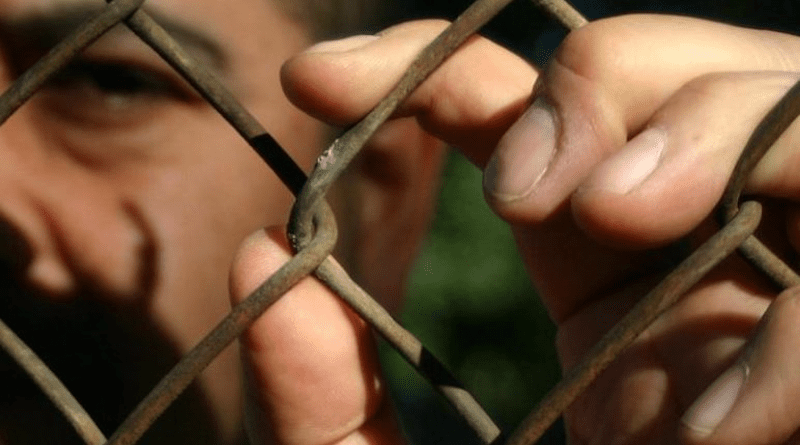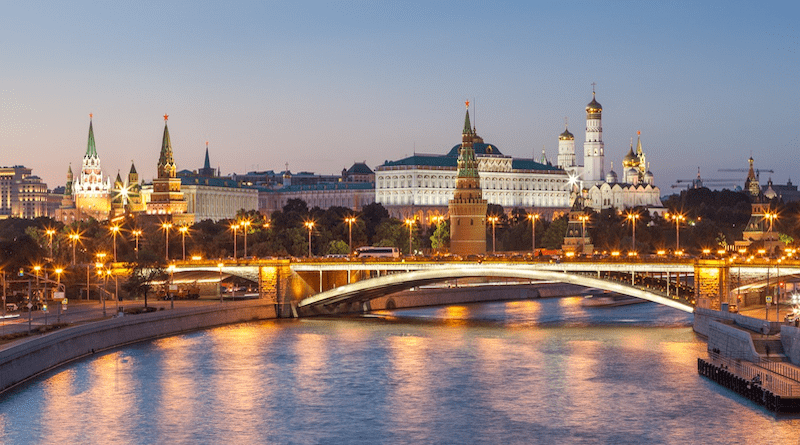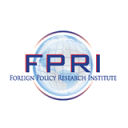
Russian Duma Deputy Calls For Special Terrorist Prisons In Norway’s Svalbard Or In Russia’s Novaya Zemlya – OpEd
By Paul Goble
Ivan Sukharyov, an LDPR Duma deputy, is calling for the construction of special prisons for those convicted of terrorism either in Svalbard or Novaya Zemlya because the isolation of these Arctic islands would not only prevent escapes but ensure that the terrorists did not influence other prisoners.
His proposals which echo those of others who have called for Guantanamo-like penal institutions to hold terrorists raise serious questions, however, first and foremost because of the Putin’s regime’s expansive definition of terrorism, one Moscow uses to convict many who are not in fact terrorists (ria.ru/20240903/tyurma-1970113222.html and thebarentsobserver.com/ru/2024/09/v-rossii-poyavilas-ideya-sozdat-tyurmu-dlya-terroristov-na-svaldbarde).
But a bigger problem has to do with sovereignty. While Russia has complete sovereignty over Novaya Zemlya and could build such a prison there without any problems internationally, Svalbard belongs to Norway, although under the existing treaty regime other states, including Russia, have the right to act there as long as they respect the archipelago’s special status.
That status is of a demilitarized region despite Norway’s membership in NATO, and some analysts last spring suggested Moscow might use this confusion to launch an attack on NATO (jamestown.org/program/moscows-first-move-against-nato-could-take-place-in-norways-svalbard-archipelago/ and windowoneurasia2.blogspot.com/2024/05/norwegian-security-expert-alarmed-by.html).
Such concerns prompted Norway to boost its military presence around the Svalbard archipelago (windowoneurasia2.blogspot.com/2024/07/norway-to-boost-its-and-natos-strategic.html), and so fears about a Russian attack there appear to have faded. But the proposal for a prison for terrorists there could reopen them.
That is because the construction of such a facility would bring many Russians to the islands who might then be used to subvert Norwegian rule and because the prisoners might be identified as terrorists but could be released by Moscow if they agreed to fight for it, just as Russia has done with prisoners inside the Russian Federation who volunteer to fight in Ukraine.
For these reasons, many in the West are likely to be skeptical about the idea. But at least for the moment, Russian commentators are too. Svobodnaya Pressa presents a sampling of their opinion and most are negative because of the costs involved in building and maintaining such a facility in the far north (svpressa.ru/society/article/428167/).
Nonetheless, what the Duma deputy has proposed bears watching because it has so many characteristics of other Putin moves, moves that many dismiss early one only to be caught out when they become the basis for broader aggression.

Putinism And Russian Ideological Shifts – Analysis
By Published by the Foreign Policy Research Institute
By Olena Snigyr
(FPRI) — Apparently, the collapse of the USSR did not mean the end of the Cold War. It took less than ten years for people trained within the KGB to take over the state management of Russia. Russian President Vladimir Putin and his allies showed their skills and views on state management by conducting the second Chechen war, beginning in 1999. Around the same time, Putin asked former US president Bill Clinton his opinion on the possibility of Russia’s membership in NATO.
Against the background of Russia’s military actions in Chechnya, this idea sounded bizarre, but today Russian propagandists with imperturbable faces tell the story that Russian leadership had quite serious intentions regarding the rapprochement between Russia and NATO. Putin’s rhetoric about the democratization and liberalization of Russia sounded equally bizarre against the background of crimes in Chechnya, murders, and persecution of journalists. The rhetoric of the Russian authorities about rapprochement with the West was most likely a ploy to buy time and obscure the fact that the Cold War never ended in the minds of those who rule Russia. Russian leadership puts confrontation with the West, above all with the United States, at the core of its foreign policy.
Seeking to secure its superpower status and unable to compete with the West militarily and economically, Moscow competes for discourse power, offering international actors a set of opinions and beliefs that are assembled into a system of strategic narratives. Russia seeks to secure a wide range of supporters among the Multi-aligned Community[1] and to undermine the cognitive, value, and political resilience among Western countries and their allies. Russian Information Influence Operations are carried out mainly within the context of Russian strategic narratives and are guided by Russian ideological principles, which are hostile to the idea of liberal democracy.
Ideology is back as an instrument of creating international alliances in global rivalry, and Russia’s role in this process is pivotal. War, propaganda, and pushing the new ideology are tools for Russia to achieve foreign policy goals and create an anti-Western alliance. It can be suggested that today Russia’s renewed ideology combines the ideological heritage of the Russian Empire and the USSR and is adjusted to the needs and goals of the Russian leadership. In his recent book, Putinism—Post-Soviet Russian Regime Ideology (2024), Mikhail Suslov mentions three main components of Russian ideology:
- Anti-liberal, communitarian, or identitarian conservatism, which presumes that Russian identity was created at the moment of Christianization of Kyivan Rus more than a thousand years ago and has never changed since that time;
- Right-wing communitarianism, which means denial of individual freedom to choose identity—to be born Russian means to be Russian forever.
- Organic, geopolitical, identitarian populism, can be found such constructs as the theory of the “deep people,” the concept of “Russian world,” pan-Slavism, etc.
New Arguments, Old Foes
Contemporary Russian ideology complements Russian foreign policy, “explains” its goals and actions, and is revealed to internal and external audiences through strategic narratives. Thus, Russia’s foreign policy goal of preserving the status of a world power is interpreted ideologically through the idea of the existence of Russia as a civilization that has a mission to save humanity, and therefore any Russian actions become legitimate and whitewashed in the eyes of supporters of this idea. The role of the global evil that Russia opposes is assigned today to liberal democratic values and, accordingly, to the West, especially the United States, as the bearer of these values.
This grand narrative’s umbrella covers the stories that the system of international law and international institutions, especially financial ones, has been significantly influenced by the West and is unbalanced. Russian leadership declares that the West replaces international law with so-called rules and thus calls into question the binding nature of international legal norms, especially norms of international humanitarian law. According to Putin “the only rules that must be followed are public international law.” Russia promotes the concept of “democratization of international relations … primarily on the basis of the principles of the UN Charter … based on respect for the sovereign equality of states,” which in the Russian interpretation means promoting the inviolability of authoritarian regimes and impunity for their leaders.
The Concept of Foreign Policy of Russian Federation defines the “elimination of the vestiges of the United States and other unfriendly states’ dominance in world affairs” as a foreign policy goal and thus advocates establishment of the new multipolar world order. According to Russian strategic narratives, this assumes the division of the world into geographical zones of interest of major world powers. The geographical ambitions of the Russian sphere of influence include the entire European continent, which, according to the architects of Russian foreign policy, should be freed from US influence and presence and become part of the Greater Eurasia integration project. This narrative corresponds to the Kremlin’s very specific foreign policy demand voiced by Putin—“to return NATO’s military potential and infrastructure in Europe to the state it was in 1997, when the Russia-NATO Founding Act was signed.”
“Traditionalists of All Countries, Unite!” (A. Dugin)
Russian ambitions to oust the United States from Europe and establish influence find an ideological explanation in Russia’s self-declared mission and duty to save the Europe of traditional values from the harmful influence of liberalism. The modern Russian ideology is based on the concept that liberal values are the main evil for humanity, and therefore Russia has a mission to protect traditional values.
Russian antiliberal rhetoric specifically focuses on two topics:
- The danger of LGBT+ rights.
- The destructive nature of the concept of individual freedom for human communities, due to its opposition to the idea of birth given collective identity and loyalty to the authorities.
Russian (and not only Russian) propaganda insists that it is the idea of individual freedom that leads to chaos, uprisings, revolutions, and the destruction of stable societies.
The list of traditional values which Russia seeks to protect, and which is given in Russian regulatory documents is made quite vague and casts a wide net in order to be appropriate for multiple audiences. The main focus of Russian propaganda is on “family values,” opposing them with individual freedom, gender equality, and the right to self-expression. An example of instrumentalization of the idea of protecting “family values” as opposed to human rights is the proposal of the head of the Russian Orthodox Church, Patriarch Kirill, regarding international development and the adoption of a convention on the rights and protection of the family.
While the idea of protection of Russian society from “malign liberal influence” became the reasoning for internal repressions and persecutions, in Russia’s foreign policy the idea of protection of traditional values became an integral element of all anti-Western rhetoric. Russia tries to popularize this idea globally and make it universal.
De-Libéralisation–Décolonisation–De-Westernisation
The idea of liberal values as evil is present in all Russian narratives explaining the conflict between Russia and the West and is mixed, sometimes in a bizarre fashion, with historical and political myths. There are two examples of such a combination in Russian official rhetoric: In the first case, the Russian duty to liberate Europe from liberal ideas is presented as a continuation of the liberation of Europe from Nazism as the result of WWII. It should be remembered that the myth of Russian Victory in the Great Patriotic War is one of the cornerstones of all Russian propaganda. It organically fits into the narrative of the historical mission of the Russian people to protect the world from global evil and is an important element of Russian modern ideology. Despite the seeming impossibility of combining liberalism and Nazism into one concept, Russian propagandists and ideologues explain the proximity between the two by the fact that the liberal West allegedly limits traditional values of illiberal societies, by demanding the observance and protection of human rights and denying the rights of authoritarian regimes to implement repressive domestic policies.
In the second case, liberalism is described as an instrument of Western neocolonialism towards their former colonial possessions, which are assumed to be only allegedly decolonized and independent, but de facto continue to be exploited by the West. Within the framework of this myth, the economic success of Western countries is explained not by the competitive advantages of liberal democratic systems, but by Western neocolonialism—the fact that the West, with the help of the policy of spreading Western governance models, created such a world order that allows it to continue exploiting its former colonies and other countries. This idea is a big part of intellectual discussions from the times of Jean-Paul Sartre and Kwame Nkrumah to contemporary statements of Walter Mignolo that Russia is just a “de-Westernizing” force and a “disobedient” state that is “not attacking, but defending itself from the harassment of Western designs.” Russia utilizes this argument of decolonial discourse with a great advantage, especially in the countries of the Multi-aligned Community.
One may assume that Russian leaders don’t believe in their ideas themselves and use ideological arguments in Informational Influence Operations to enforce their policy and achieve their goals. However, the revamping of this ideology to use it in competition with foreign rivalries reveals genuine intentions and can indicate long-term tendencies in Russian politics.
- About the author: Olena Snigyr is a 2024 Templeton Fellow in the Eurasia Program at the Foreign Policy Research Institute. She is also a Jean Monnet Fellow at the Robert Schuman Centre for Advanced Studies at the European University Institute.
- Source: This article was published by FPRI
[1] The term Multi-aligned Community was proposed by Jonathan Morley-Davies, Jem Thomas, Grahem Baines and is defined as “States existing outside of the Western environment who have exhibited a preference for aligning or partnering with chosen states depending on specific spheres or issues.”

Published by the Foreign Policy Research Institute
Founded in 1955, FPRI (http://www.fpri.org/) is a 501(c)(3) non-profit organization devoted to bringing the insights of scholarship to bear on the development of policies that advance U.S. national interests and seeks to add perspective to events by fitting them into the larger historical and cultural context of international politics.

